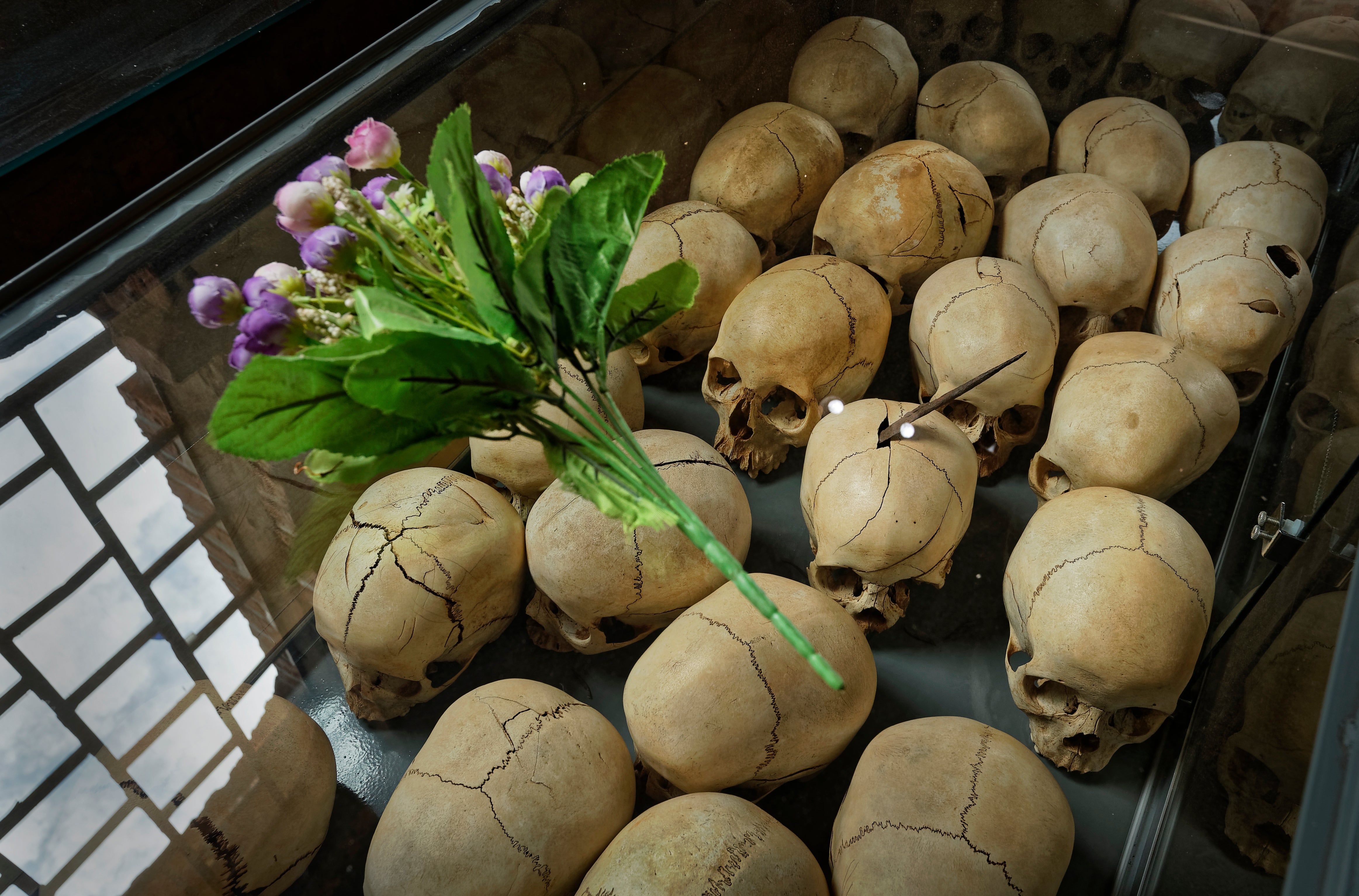Rwanda recalls genocide as France seeks to reset relations
Rwandans are marking 27 years since the genocide in somber commemoration events Wednesday, as France reevaluates its role and opens its archives from the period to the general public

Your support helps us to tell the story
From reproductive rights to climate change to Big Tech, The Independent is on the ground when the story is developing. Whether it's investigating the financials of Elon Musk's pro-Trump PAC or producing our latest documentary, 'The A Word', which shines a light on the American women fighting for reproductive rights, we know how important it is to parse out the facts from the messaging.
At such a critical moment in US history, we need reporters on the ground. Your donation allows us to keep sending journalists to speak to both sides of the story.
The Independent is trusted by Americans across the entire political spectrum. And unlike many other quality news outlets, we choose not to lock Americans out of our reporting and analysis with paywalls. We believe quality journalism should be available to everyone, paid for by those who can afford it.
Your support makes all the difference.Rwanda is marking 27 years since its genocide with somber commemoration events Wednesday, as France reevaluates its role in the mass killings and opens its archives from the period.
For the second year running, Rwanda's genocide commemoration events will be curtailed to combat the spread of COVID-19. Rwandans will watch on television as a symbolic flame of remembrance is lit at a genocide memorial. The annual ‘Walk to Remember’ will not be held. Instead of speaking to a mass gathering at a sports stadium in the capital, Kigali President Paul Kagame is addressing a smaller gathering of dignitaries, all keeping distances from each other.
This year's anniversary may also resonate differently because it comes amid an apparent detente between Rwanda and France, over the European country's role in the genocide.
A French government report released in March includes a frank acknowledgment of France’s apparent “blindness” to the drift that led to the genocide.
The report, commissioned in 2019 by French President Emmanuel Macron concluded that French authorities failed to perceive preparations for the killings as they supported the “violent” government of then-Rwandan President Juvenal Habyarimana and then were too slow to acknowledge the extent of the killings. But the report cleared the French of complicity in the massacres.
France is opening its government archives from the genocide period to the public for the first time. About 8,000 documents that the commission examined for two years, including some that were previously classified, will be made accessible to the general public starting Wednesday.
Macron’s decision to commission the report and open the archives to the public are part of his efforts to more fully confront France's role in the genocide and to improve relations with Rwanda, including making April 7, the day the killings began, a day of commemoration.
Rwandan authorities, who were alleging French complicity as recently as 2017 and in the past have demanded an apology, responded positively to the new report, saying in a brief statement that the conclusions of their own report, to be released soon, “will complement and enrich” the French version.
An estimated 800,000 ethnic Tutsis, and Hutus who tried to protect them, were killed by Hutu perpetrators during 100 days in 1994. The spark for the killings came on April 6, when a plane carrying Habyarimana was shot down and crashed in Kigali, killing the leader who, like most Rwandans, was an ethnic Hutu. Tutsis were blamed for downing the plane, which they denied, and bands of Hutu extremists began killing them, including children, with support from the army, police and militias.
For years under the leadership of Kagame, whose rebel forces stopped the genocide, relations between Rwanda and France have been strained — aggravated by accusations and counter-accusations relating to their alleged roles before, during, and after the genocide. But Macron's initiatives and other French government actions appear to be easing tensions.
Félicien Kabuga, a Rwandan long wanted for his alleged role in supplying machetes to the killers, was arrested outside Paris last May.
And in July an appeals court in Paris upheld a decision to end a years-long investigation into the plane crash that killed Habyarimana and set off the genocide. That probe angered Rwanda’s government because it targeted several people close to Kagame for their alleged role, drawing strong denials and counter-accusations that France had covered up its own role in the genocide.
Kagame, who has been Rwanda's de facto leader since 1994 and its president since 2000, has won praise abroad for restoring order and making advances in economic development and health care. But rights watchdogs, dissidents, and others accuse Kagame of harsh rule and charge that his authoritarian style is unsustainable.
___
Muhumuza reported from Kampala, Uganda.